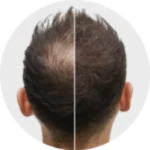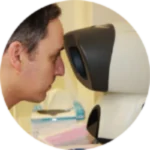Why Does Hair Loss Happen?
Androgenetic alopecia (also known as male-pattern or female-pattern baldness) is the most common reason why hair loss happens. In men, the hair usually starts to thin around the hairline and the crown. It can take decades to become bald or it can happen at an early age.
Both men and women can have a genetic predisposition to hair loss, as you may inherit the genes associated with hair loss from either one or both of your parents, no matter your sex.
There are many other reasons besides androgenetic alopecia for hair loss, such as hormonal changes from thyroid problems, chronic stress, or a diet that is very low in iron.













